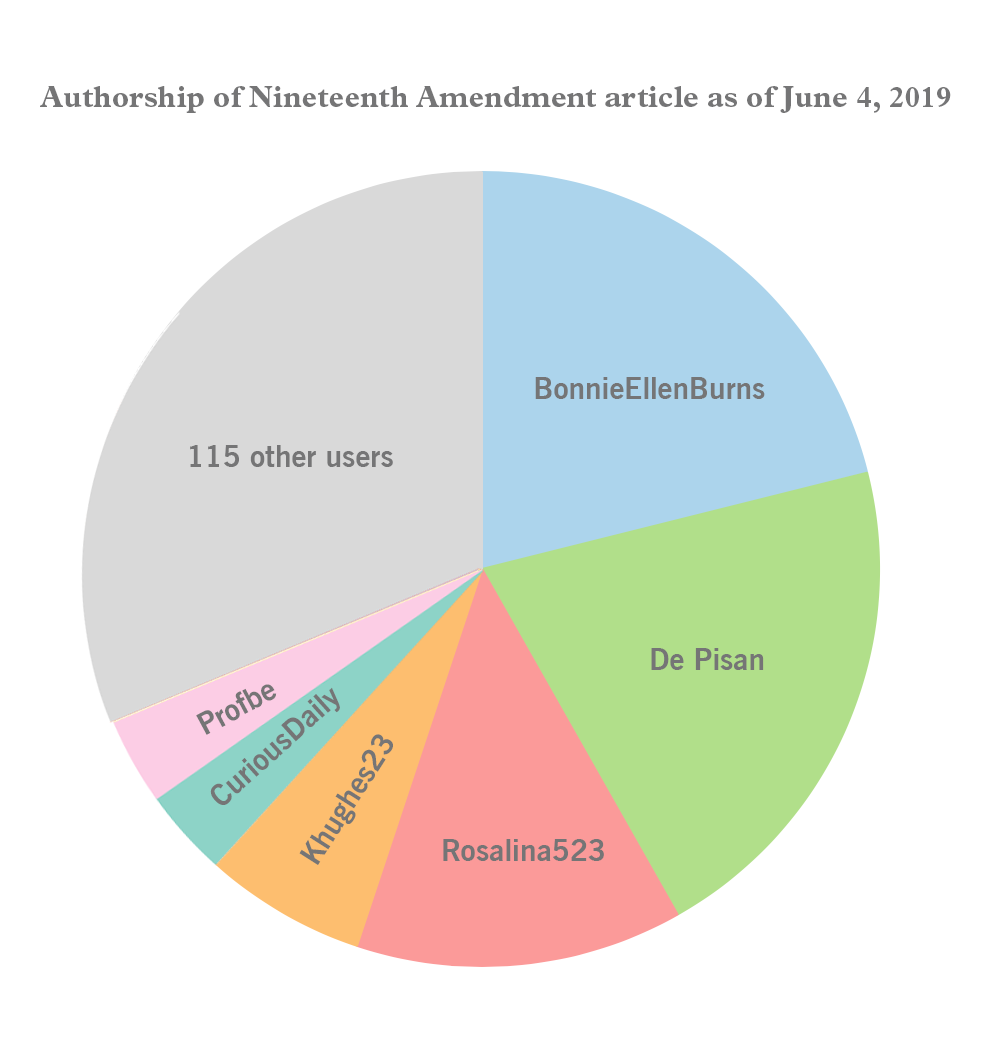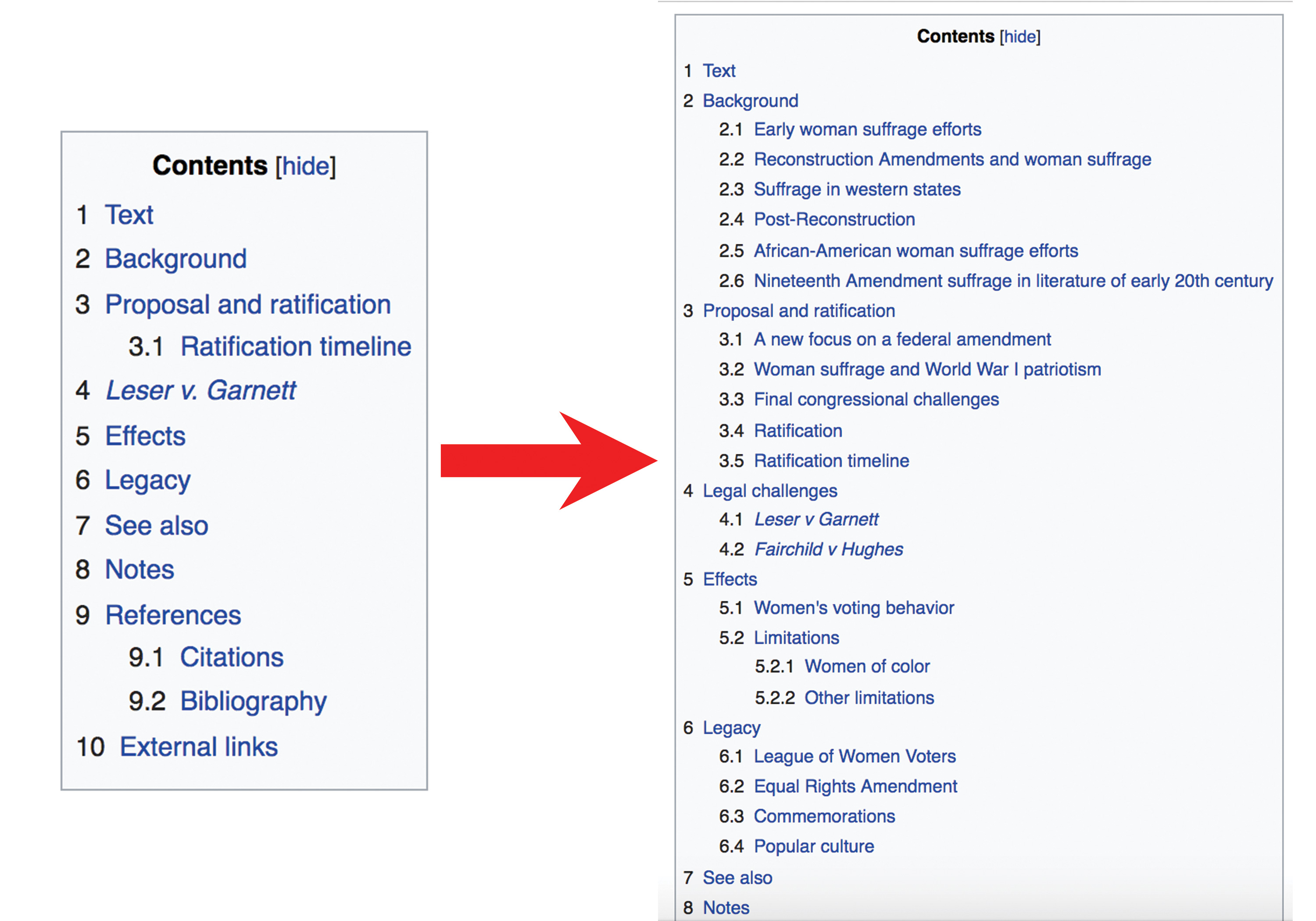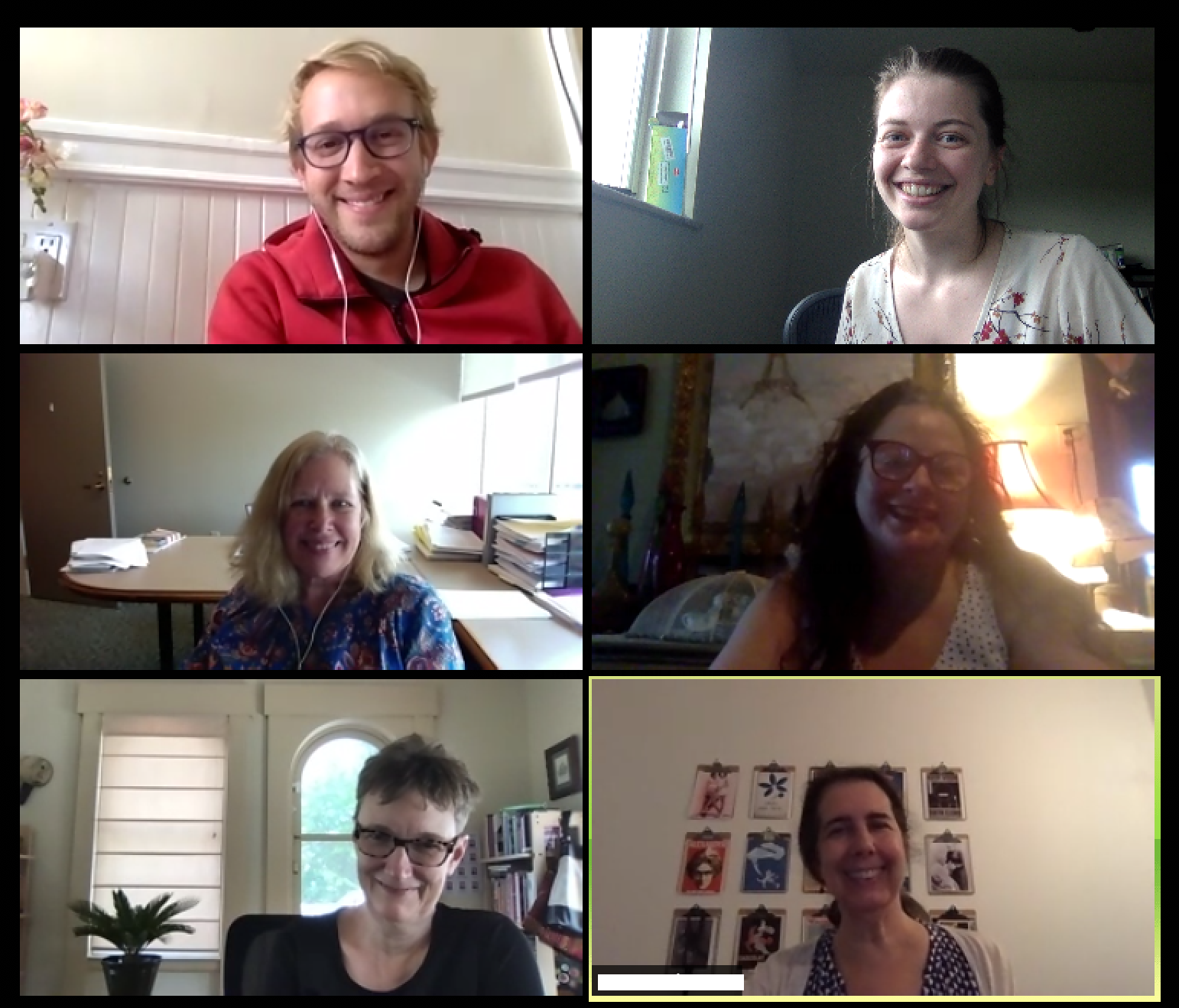History books often focus on the white change-makers of the suffrage movement. Until last month, it was no different on Wikipedia. The article documenting the Nineteenth Amendment, which prohibited governments from discriminating against voters on the basis of sex, not only centered the narrative on white people, but on white men.
In order to ensure the public has access to the best representation of women’s suffrage in the United States, Wiki Education teamed up with the National Archives and Records Administration last fall. We have spent the last 8 months running courses to train researchers and archivists how to improve Wikipedia’s coverage of these topics. Experts spent months expanding articles on suffragists like Ida B. Wells and Mabel Ping-Hua Lee, and events like the Woman suffrage parade of 1913.
After seeing the incredible work these new Wikipedians could accomplish, we invited top performers to come back and focus their efforts on getting the article on the Nineteenth Amendment up to a higher quality prior to the 100th anniversary of its passing. Thanks to these six women, the thousands of people reading about the Nineteenth Amendment today will find a better representation of this important moment in history.
In just four weeks, our Wiki Scholars are responsible for 68.8% of the article’s content. And it’s now close to the second highest quality rating on Wikipedia. The article reaches nearly 2,000 readers a day (not including the influx we expect on today’s anniversary). That’s an astonishing reach to achieve.

What changed?
Before the six Wiki Scholars began working, two of the three photos in the article featured men (like the Supreme Court justice who presided over the Leser v. Garnett case where the Nineteenth Amendment was constitutionally established). And the presentation of the facts typically focused on men as the catalysts of change.
Before March, the section about the Leser v. Garnett case read: “Oscar Leser sued to stop two women registered to vote in Baltimore, Maryland, because he believed that the Maryland Constitution limited the suffrage to men and the Maryland legislature had refused to vote to ratify the Nineteenth Amendment.” The Wiki Scholars asked, why are we focusing on the men in this story instead of the women they were trying to stop from voting? These women don’t even get names? In fact, one of the women asserting her right to vote was a woman of color, which was completely erased through that limited description. After our course participants got to work, the section now reads,
Maryland citizens Mary D. Randolph, “‘a colored female citizen’ of 331 West Biddle Street,”[1] and Cecilia Street Waters, “a white woman, of 824 North Eutaw Street”,[2] applied for and were granted registration as qualified Baltimore voters on October 12, 1920. To have their names removed from the list of qualified voters, Oscar Leser and others brought suit against the two women on the sole grounds that they were women, arguing that they were not eligible to vote because the Constitution of Maryland limited suffrage to men[2] and the Maryland legislature had refused to vote to ratify the Nineteenth Amendment.

The Nineteenth Amendment article now features a subsection about what it didn’t do to enfranchise women of color — a facet of suffrage history that was previously absent from the article and is often underrepresented in the telling of suffragist history in general. Even after the passing of the Amendment, states used loopholes to prohibit both men and women of color from exercising their right well into the 60s when the Voting Rights Act of 1965 made racial discrimination in voting much more difficult for states to perpetrate.

Our NARA Wiki Scholars courses have made strides in bringing women of color to the forefront of public history, recognizing and celebrating their integral contributions to the movement. Other Wikipedia volunteers have praised the work, especially coming from new users. They completed the project just in time for the kickoff of celebrations around the Nineteenth Amendment’s passing. Now, millions worldwide can get a better picture of the rich history of this day and its legacy.


Thank you for this hard work!